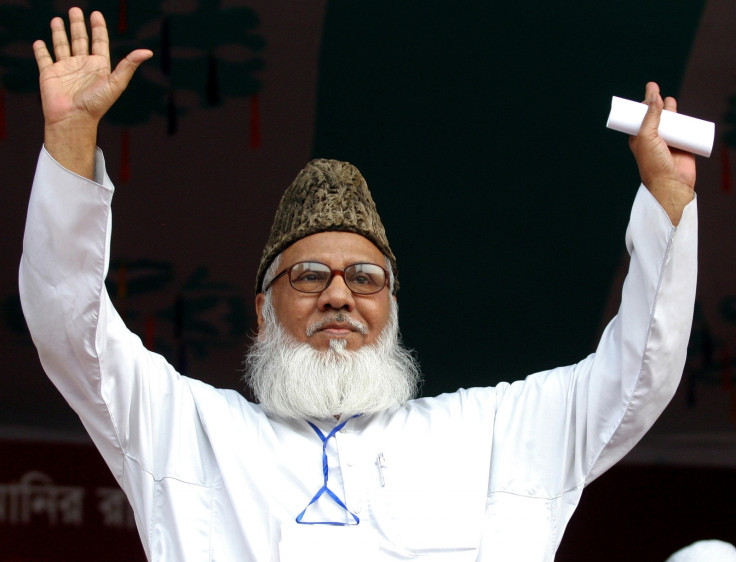Bangladesh hangs Islamist leader Motiur Rahman Nizami for war of independence atrocities

Bangladesh has hanged the leader of an Islamist party for war crimes committed during the country's bloody struggle for independence from Pakistan in 1971. Jamaat-e-Islami Party leader, Motiur Rahman Nizami, 73, who was also a former government minister, had been found guilty in 2014 of rape, genocide, torture and planning the murder of intellectuals over forty years ago.
After having his final appeal against the death sentence turned down by the Supreme Court and refusing to plead for mercy from President Abdul Hamid, Nizami was hanged just after midnight local time on Wednesday, 11 May, at Dhaka Central jail.
The reaction to Nizami's execution was mixed. Hundreds of people took to the streets to cheer the death of a man they saw as a war criminal. Between 500,000 and three million people died during the fight for independence from West Pakistan, which his party, among others, strongly opposed. War veteran Akram Hossain told Reuters: "We have waited for this day for a long 45 years. Justice has finally been served."
However in executing such a high profile figure, the Bangladesh government has been accused of targeting leading figures of parties in opposition to the ruling party led by Prime Minister Sheikh Hasina.
Five opponents have been hanged since 2013. The acting leader of Nizami's party, Maqbul Ahmad, said he would call for a strike on Thursday 12 May. "Nizami has been deprived of justice, said Ahmad. "He's a victim of political vengeance."
The country is also a target for Islamist terrorists inspired by Islamic State (Isis), who have hacked to death a number of bloggers, equal rights campaigners and academics in the last few years. On Sunday, 8 May, Sufi Muslim leader Mohammad Shahidullah, 65, was found with his throat slit in northern Bangladesh. In April, Xulhaz Mannan - the editor of an LBGT magazine - was hacked to death in Dhaka.
Bangladesh's authorities have repeatedly denied there is an Isis presence in the country. However, a number of militant Islamist groups are known to operate and several have bragged of committing murders.
© Copyright IBTimes 2025. All rights reserved.






















